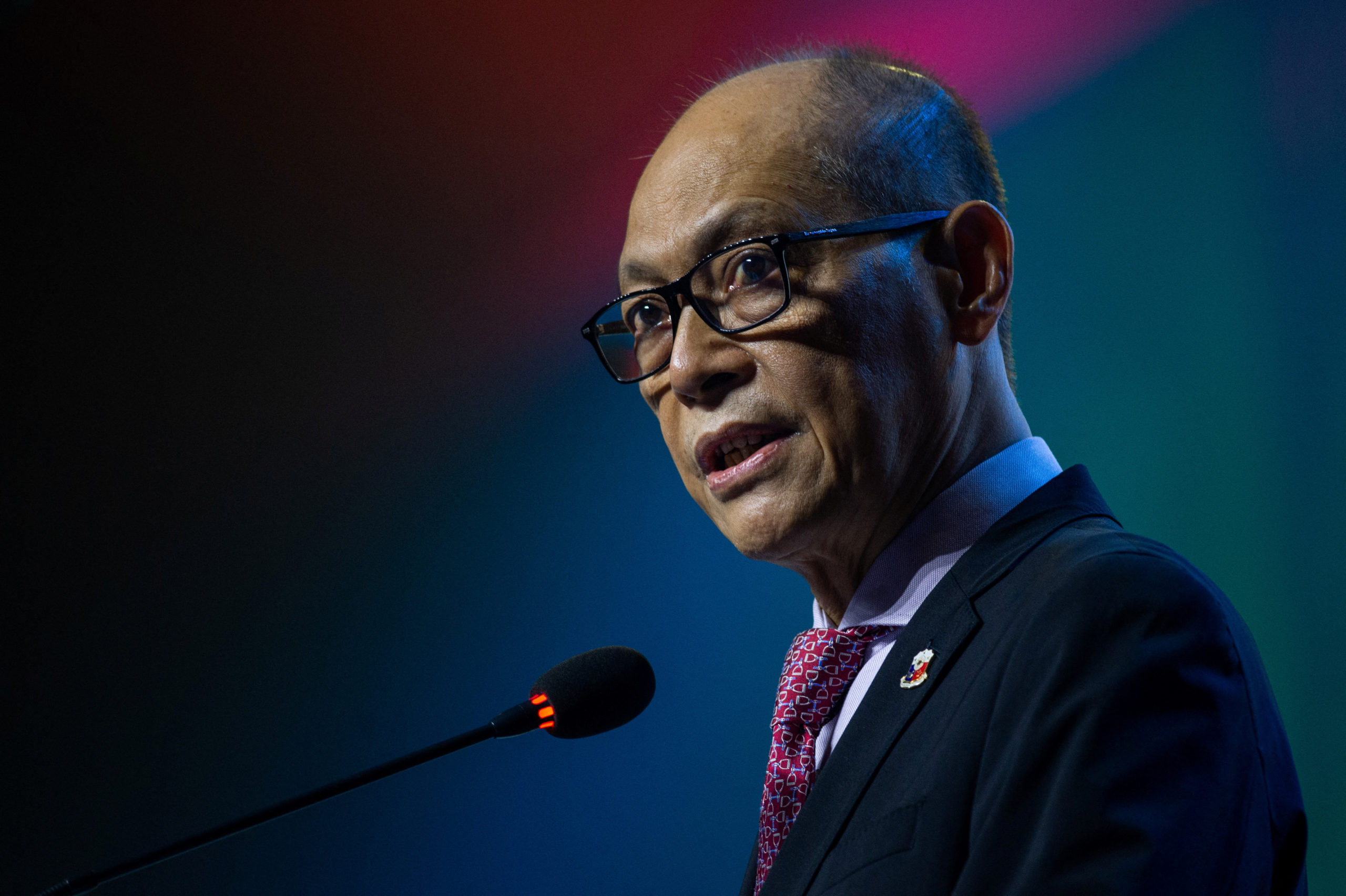Inflation slowed to 6.6%; three-month ‘downtrend’ noted

FILE PHOTO: Philippine Finance Secretary Benjamin Diokno speaks during an economic briefing following President Ferdinand Marcos Jr’s first State of the Nation Address, in Pasay City, Metro Manila, Philippines, July 26, 2022. REUTERS/Lisa Marie David/File Photo
The rate of increase in the prices of basic goods and services slowed down for the third month in a row to 6.6 percent in April, coming in below analysts’ consensus forecast of 7 percent and the Bangko Sentral ng Pilipinas’ (BSP) 6.7 percent.
National Statistician Dennis Mapa said at a press briefing on Friday that the continued downturn of inflation—from 7.6 percent in March—was mainly due to slower increases of prices of vegetables, fish and meat as well as of diesel and gasoline, and also electricity and liquefied petroleum gas.
For the four months from January to April, inflation averaged at 7.9 percent.
Finance Secretary Benjamin Diokno said that inflation slowing down for the third straight month “implies a continued downtrend.”
“The recent inflation numbers indicate that we are on track to managing inflation to within target sometime in the fourth quarter, if not sooner, and near the midpoint of the target range of 2 percent to 4 percent by next year,” Diokno said.
‘Hardly felt’
House Deputy Minority Leader Rep. France Castro, however, is not cheering the April results, saying that the supposed price declines had been “hardly felt by majority of Filipinos, especially the poor.”
“For the poor who can barely afford to buy food, they do not feel that inflation slowed down. As long as workers receive low wages and many are going hungry, there is no point for the government to boast that inflation went down,” she said on Friday.
The lawmaker pointed out that for workers, teachers, nurses and government employees to be “happy about slow inflation,” the Marcos administration must first increase wages for them to cope with elevated inflation.
Castro said the daily minimum wage should reach at least P 1,161, or the needed family living wage, while public school teachers should have at least a Salary Grade 15 entry level salary, or about P37,000 a month.
Nurses, on the other hand, should be paid at least P 50,000 and government employees, P33,000. (See related story on A6)Castro also stressed that although April’s inflation rate was within the BSP’s estimate for the month of between 6.3 percent and 7.1 percent, it was still way above the 2023 target of between 2 percent and 4 percent. Indeed, the government warned that inflation would likely remain high.
In April, the interagency Development Budget Coordination Committee (DBCC) raised its 2023 inflation outlook to 5 percent to 7 percent from the previous assumption of 2.5 percent to 4.5 percent, mainly due to high food prices and energy and transport costs.
El Niño, ASF factors
The National Economic and Development Authority (Neda)—which is part of the DBCC—even flagged risks that upcoming monthly readouts could go above forecasts.
Neda Secretary Arsenio Balisacan said such risks emanated from potential transport fare increases and wage adjustments as well as domestic food supply pressures amid the threat of El Niño climate phenomenon and the resurgence of the African swine fever (ASF).
Climate forecasters expect El Niño, which brings to the Philippines lower-than-normal rainfall and even drought, to develop in June. Past occurrences of El Niño destroyed billions of pesos worth of agricultural produce.
New price monitor
“It is important to design policies and interventions to help those that will be affected by El Niño, through the provision of seeds or seedlings of nonwater-loving crops or crop varieties,” Balisacan said.
“Additionally, the government must remain proactive in curbing animal disease outbreaks through stronger border protection and monitoring,” he added.
The BSP likewise sees risks ahead, saying that despite the recent slowdown in the price increases on food, the potential effect of ongoing supply shortages continues to put upward pressure on the inflation outlook.
“Other upside risks (or factors that may cause actual numbers to exceed forecasts) emanate from the impact of higher transport fares, increasing electricity rates, as well as above-average wage adjustments in 2023,” the BSP said.
“On the downside, the impact of a weaker-than-expected global economic recovery continues to be the primary factor that could dampen inflation,” the central bank added.
Timely recommendations
To help the government respond faster to inflation risks, it activated the Inter-Agency Committee on Inflation and Market Outlook (IAC-IMO) which monitors prices on the ground and facilitates regular and systematic data-sharing.
The IAC-IMO is expected to provide timely recommendations to the President and relevant agencies on measures to mitigate inflation and ensure sufficient food and energy supply.
The committee has so far recommended importations to fill in supply gaps, strategic prepositioning of rice buffer stocks in time for the El Niño, improvement and expansion of the Kadiwa program, and fast-tracking the distribution of targeted subsidies to fishers and farmers in the short term.
